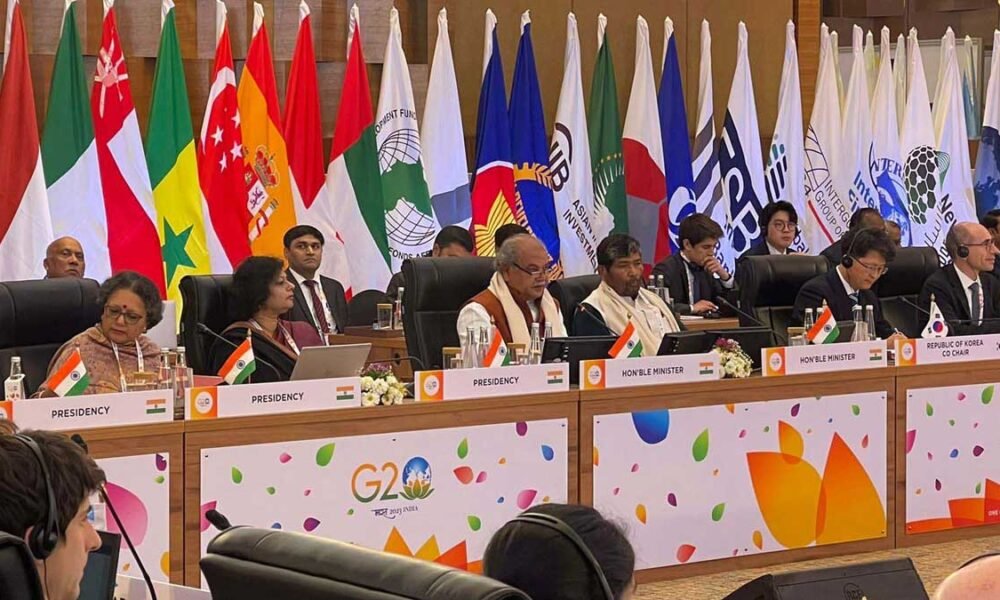By: Dipak Kurmi
During an event at Delhi University on Thursday, August 31st, India’s External Affairs Minister, S. Jaishankar, emphasized the crucial importance of India being granted permanent membership in the United Nations Security Council (UNSC). He likened the current situation to the five permanent members, who hold veto power, as passengers in the front row of a bus unwilling to relinquish their seats. Jaishankar’s statement comes just ahead of the G20 Summit scheduled for September 9-10 in New Delhi, underscoring India’s proactive efforts to secure a permanent seat in the UN body. This move is strategically timed to make a compelling case for India’s inclusion in the UNSC as a permanent member during the upcoming G20 Summit, which will gather representatives from member and guest nations in New Delhi.
Given the context, it is evident that Prime Minister Narendra Modi intends to leverage the forthcoming bilateral discussions with numerous global leaders on the sidelines of the G20 Summit. These meetings will serve as a platform for India to advocate strongly for its permanent membership in the UNSC. By addressing the UNSC issue, Jaishankar’s remarks have indicated India’s readiness to redirect the G20 bloc’s attention towards United Nations reforms. India’s assertive diplomatic efforts have notably influenced the BRICS group, comprised of Brazil, Russia, India, China, and South Africa, to emphasize the necessity for a reevaluation of UNSC memberships, signaling a broader push for UN reform.
India’s stance on its potential inclusion in the UN Security Council has received a significant boost, and the Indian government is understandably pleased with this development. The 15th BRICS summit, recently held in Johannesburg, South Africa, concluded with a final declaration that expressed support for increased representation of developing nations in the UN Security Council. The statement specifically endorsed the aspirations of Brazil, India, and South Africa to assume a more prominent role in the UNSC. The joint statement emphasized the need for a comprehensive reform of the United Nations, including its Security Council, with the aim of making it more democratic, representative, effective, and efficient. The BRICS nations underscored the importance of addressing global challenges and supporting the legitimate aspirations of emerging and developing countries from regions like Africa, Asia, and Latin America. For India’s mission to secure permanent membership in the UNSC, this declaration from BRICS served as a significant vote of confidence.
India’s confidence in its pursuit of UNSC permanent membership was evident in the words of External Affairs Minister Jaishankar himself. He noted that BRICS had, for the first time, acknowledged the need for a change in UNSC memberships. Jaishankar’s statement hinted at China as a key obstacle hindering India’s aspirations in this regard. Just a month prior, during his visit to France, Prime Minister Narendra Modi had strongly advocated for India’s rightful place in the UNSC. He questioned the legitimacy of the UNSC as a primary global organ when large continents like Africa and Latin America remained underrepresented. Modi highlighted the irony of the world body claiming to speak for the globe while India, the most populous country and a vibrant democracy, was not a permanent member. With Jaishankar’s renewed call for India’s inclusion as a permanent UNSC member, it is clear that during the upcoming G20 Summit, Prime Minister Modi will seize every opportunity to reaffirm India’s claim to a permanent seat on the global stage.
What bodes well for India is the strong support it has garnered from four out of the five permanent members of the 15-nation UN Security Council. The United States, the United Kingdom, France, and Russia have all endorsed India’s bid for a permanent seat in the UN body. Notably, the lone holdout against India’s aspirations has been China, which has not backed India’s quest for permanent membership. India seeks to expand its support base beyond the BRICS nations, especially among newly included members, and rally the global community to exert pressure on Beijing to reconsider its stance.
In a positive turn of events, United Nations Secretary-General Antonio Guterres also voiced his support for reforming the UNSC while addressing the BRICS summit. This added endorsement aligns with the growing international call for comprehensive reforms within the UN Security Council. (The writer can be reached at dipaknewslive@gmail.com)







